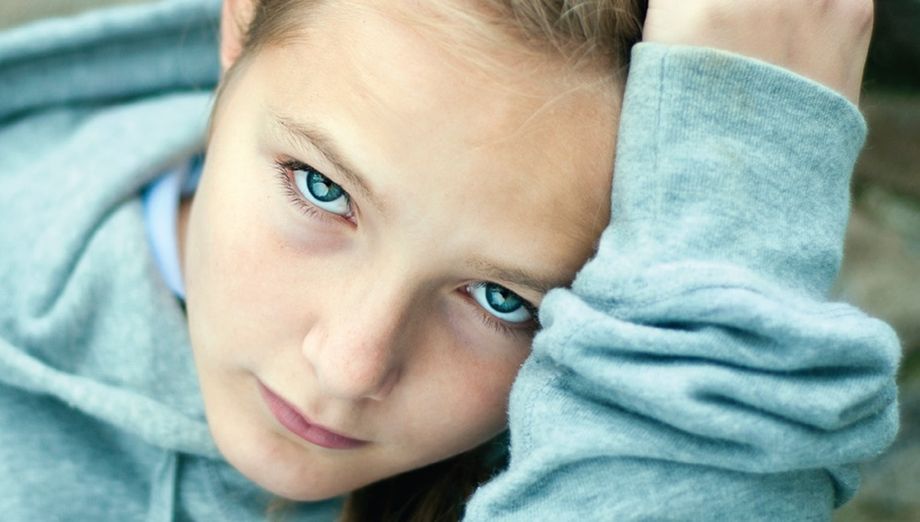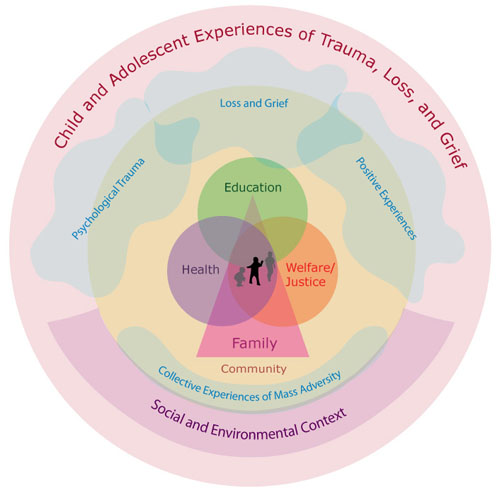Trauma, loss and grief

Every year, thousands of Australian children experience adverse life events associated with loss, threat, exposure to violence, abuse, natural disasters, severe illness or injury.
The Australian Child and Adolescent Trauma, Loss and Grief Network targets psychological trauma and/or loss and grief suffered as a result of:
- serious accidents, injuries, illnesses or life-threatening events
- witnessing threats or violence to family members or other loved ones
- child abuse and neglect
- severe bullying
- violent, sudden or unexpected deaths of family members
- loss and changes in family, friends and other important relationships in schools and communities
- life-threatening experiences such as disasters, terrorism or other major incidents.
While many children are resilient, these experiences can have both immediate and long-term effects on their mental health and ability to function in family and school life.
Understanding childhood trauma, loss and grief: an ecological approach
 The ecological model of childhood development (see diagram) outlines how children’s experiences and development are products of the many relationships, settings and broader contexts they encounter. This model can help us to understand the effects of, and influences on, childhood adversity, and inform the way we collaborate as members of this network.
The ecological model of childhood development (see diagram) outlines how children’s experiences and development are products of the many relationships, settings and broader contexts they encounter. This model can help us to understand the effects of, and influences on, childhood adversity, and inform the way we collaborate as members of this network.
A range of events associated with the loss of loved ones and exposure to violence, abuse, natural disasters, severe illness or injury can lead to psychological trauma and loss and grief experiences in children and adolescents.
The idea that children’s experiences and development are products of the many relationships, settings and broader contexts they encounter (and the links between these systems) is now widely accepted by clinicians and researchers as a way of understanding children’s health and wellbeing (Bronfenbrenner’s Ecological Systems Theory). This perspective has also been used to develop national policies towards children’s mental health.
The Australian Child and Adolescent Trauma, Loss and Grief Network uses an ecological perspective to understand the effects of, and influences on, childhood adversity. Our recognition of the interdependence between the different settings and contexts in children's lives also informs the way we collaborate as Network Members.
Through a consultative process in 2007 and 2008, the network identified 10 focal areas for practice and action regarding children’s exposure to, and experiences of trauma, loss and grief, each understood within the context of this ecological model.
Reference
- Bronfenbrenner, U & Morris, P.A. (1998) In (Series Ed.) & R. M. Lerner (Vol. Ed.), Handbook of Child Psychology: Vol. 1. Theory (5th ed.). New York: Wiley. Theoretical models of human development. In: Lerner RM, editor. Handbook of child psychology. 5th ed. New York: Wiley. pp. 993-1028.




